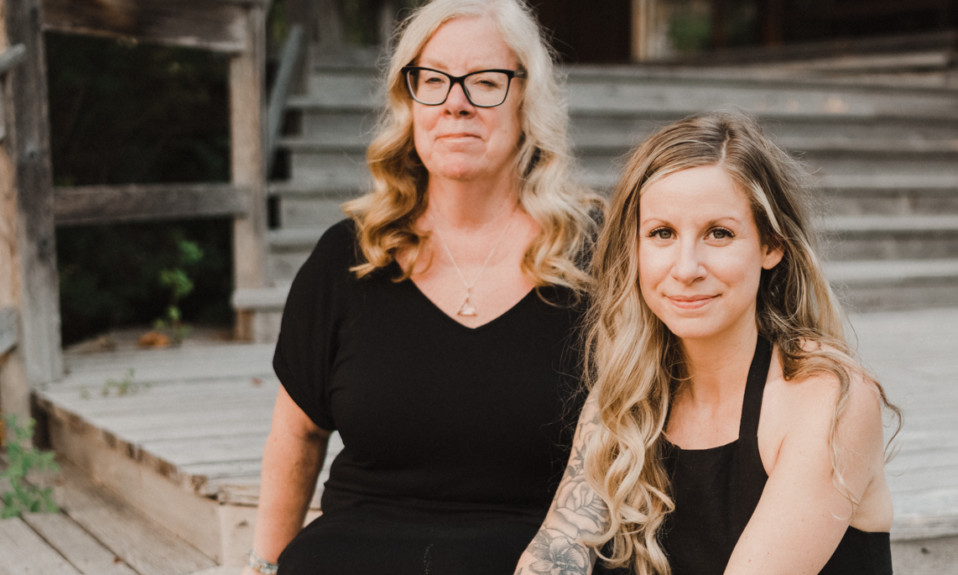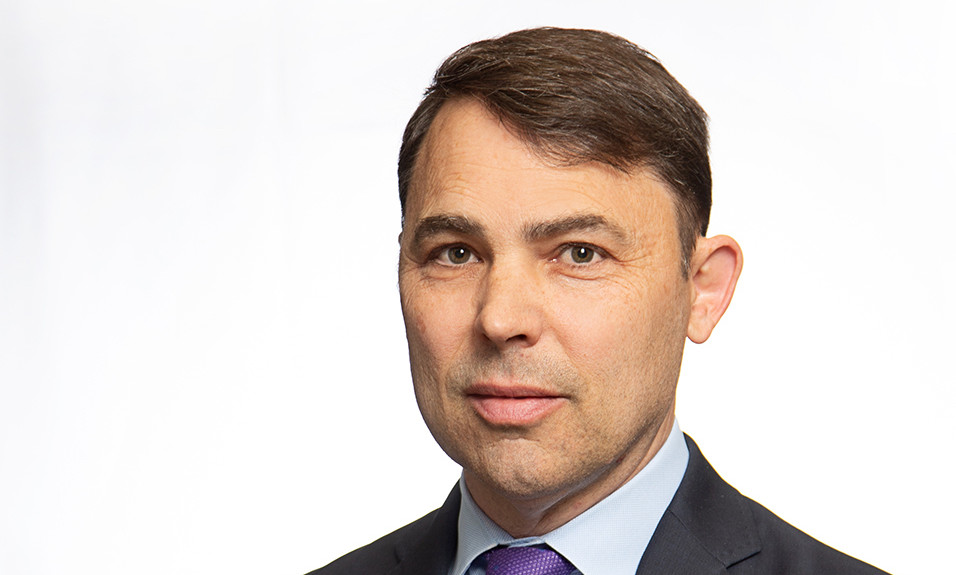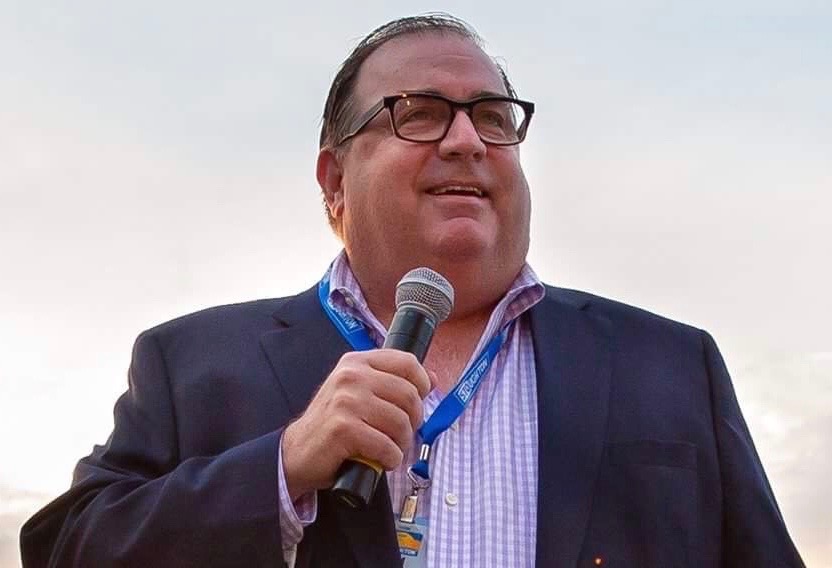Mother-daughter duo Dawn Nickel [left] and Taryn Strong have made it their mission to help women heal from the wounds that are passed from generation to generation
By Veronica L. Holyfield
Many models of addiction treatment espouse that mental health issues and substance abuse disorders are passed down from one generation to the next. Often, the suffering is attributed to parental modeling or genetic predisposition. However, research is revealing another component: intergenerational trauma.
The She Recovers Foundation, an international grassroots movement of women who are in or seeking recovery, is taking on the task of educating women and their families about the role that heritage plays in the misuse of substances. Co-founders Dawn Nickel, Ph.D., CPRC, and Taryn Strong, RYT, CPRC, are a mother-daughter duo who believe that they can help to create better addiction and mental health outcomes by spreading awareness about intergenerational trauma.
When I got to the point where I was really starting to examine—to zoom out and look at the patterns, behaviors and addictions that I was engaged in—it was undeniable that I was repeating the exact same patterns and habits that my mom did in her active addiction.”
—Taryn Strong
In their mission to inspire hope, reduce stigma and empower women, Nickel and Strong have tapped into their resources, individual interests and desire to cultivate a community that is informed and able to overcome the obstacles of addiction. Knowing firsthand the impact of intergenerational trauma, both women have traveled their own paths into recovery.
“When I got to the point where I was really starting to examine—to zoom out and look at the patterns, behaviors and addictions that I was engaged in—it was undeniable that I was repeating the exact same patterns and habits that my mom did in her active addiction,” Strong says. “I had heard through Indigenous knowledge that we carry the trauma of our ancestors. What we don’t heal in our lifetime we bestow and pass forward to the next seven generations. When I heard that, things just started to click. All the light bulbs went off, and it set me on this really beautiful journey of healing with my mom.”
What Is Intergenerational Trauma?
Intergenerational trauma, also known as generational or transgenerational trauma, is defined by the American Psychiatric Association (APA) as unconscious grief from historical trauma passed down from generation to generation. This theory is widely understood through the lens of the catastrophic events inflicted on Indigenous communities due to colonialism in North America—forced relocation, land dispossession and loss of spiritual practices, language and culture. According to the APA, the collective trauma responses might include substance abuse, depression, anxiety, low self-esteem, anger and suicidal thinking.
As individuals witness or are directly exposed to violent struggles, the psychological repercussions are passed down, even if they’re not acknowledged or understood. While Strong didn’t grow up in a household where she observed active addiction—Nickel had found recovery by the time Strong was two years old—her own mental health challenges, substance misuse and domestically violent relationships were uncannily similar to those of her mother.
Nickel says her own mother faced trauma due to her father’s experiences in World War II: A peaceful man who was drafted to serve his country, he returned from the war addicted to drugs and alcohol and suffering from post-traumatic stress disorder (PTSD), and inflicted violence on her mother. As Nickel did her own self-work in therapy after getting sober and exiting an abusive relationship, she came to the alarming realization that her daughter, Strong, was involved in the same patterns of behaviors.
I did see Taryn do the exact same things as I did: the same drugs, the same involvement with drug dealers, really unhealthy relationships. I couldn’t help but think how things were passed on. The concept that hit me most was that the dysfunction stops here.”
—Dawn Nickel
“It struck me at that time, like, ‘Wow, these things just kind of go on,’” Nickel says. “I did see Taryn do the exact same things as I did: the same drugs, the same involvement with drug dealers, really unhealthy relationships. I couldn’t help but think how things were passed on. The concept that hit me most was that the dysfunction stops here. Taryn is extremely committed to making sure that our family heals as well as we can, which is hard.”
Strong says her mother’s ability to look back and work through her own intergenerational trauma provided an opportunity to change the course of her family’s history. Says Strong, “I have a favorite quote: ‘It’s not your fault, but it’s your turn.’ I think anyone in recovery from anything is often the first in their family to ever start to unpack the burdens that were passed on.”
Providing Help Through She Recovers

Strong and Nickel have been able to heal from their intergenerational trauma together, diving into difficult conversations and unpacking the past. They both acknowledge that this opportunity is a privilege, as some families have lost members to addiction or mental illness or simply lack the interest to stir up painful memories. Their recommendation is to remain steadfast in the healing process and to latch on to a community like She Recovers that provides emotional support.
“Something that has been a part of my ancestral healing and intergenerational healing journey has been really connecting with my European ancestry, and connecting with the rituals and the traditions,” Strong says. “What we’ve been really infusing into our [She Recovers] retreats and in our online gatherings is encouraging our community to look into their ancestry and what type of ritual and ceremony they engaged in. What did they love to do? That’s a really great form of intergenerational healing as well.”
It is through that healing journey, both individually and collectively, that the participants of She Recovers programs reap benefits. From forums and groups to online therapy and recovery coaching to the retreats and symposiums, She Recovers encourages people to live fully in the present by “answering the call to heal past wounds and intergenerational trauma,” as the nonprofit’s intentions and guiding principles state.
“When [Nickel and Strong] sit today and realize where we’re at, we see what we’re able to do in our lives today and be an example of resilience, wisdom and strength in the aftermath of so much chaos, trauma and destruction,” Nickel says. “We do see that there is the bigger picture for it, and I, for one, am extremely grateful for most of the things that led to where I am today.”














